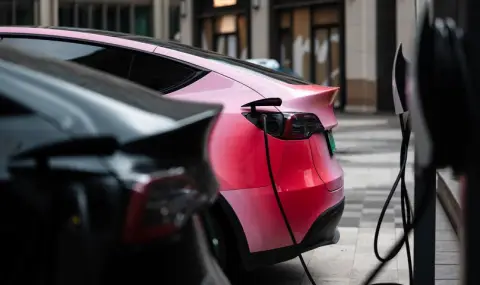Beijing and Brussels will continue to negotiate on electric cars even after the EU vote on October 4 to finally increase duties on them, the portal Euractiv.
reported
According to him, EU countries will vote on the final introduction of countervailing measures for electric vehicles imported from China on October 4. At the same time, the draft proposal of the European Commission (EC) on tariffs, sent to the countries of the community, contains in the preamble a provision on the need to continue negotiations with China in order to find alternative options for resolving the trade dispute.
As Euractiv explains, the vote was originally scheduled to take place on September 25, but was postponed to allow for further negotiations with China. The EC, in particular, proposed that Chinese manufacturers introduce minimum prices for electric vehicles supplied to the community to offset alleged market distortions from Chinese government subsidies to this industry.
At the same time, for the existing temporary tariffs to be lifted, representatives of 15 of the 27 EU countries must vote against approving the EC's draft. So far, only Cyprus, Malta, Hungary, Spain and Slovakia have announced that they will not support trade restrictions against China, and Sweden and the Czech Republic have not yet made a final decision, the portal writes.
The European Commission (EC) announced the introduction of temporary tariffs on Chinese cars from July 4, and in September announced a decision to introduce such tariffs permanently from November 4. The EC explained that the duty on BYD electric cars will be 17%, Geely - 19.3%, SAIC - 36.3%, for the products of all other companies that "cooperated with the investigation of the European Commission", the duty is set at 21.3%, for those who did not cooperate - 36.3%. The only exception was the American Tesla electric cars made in China, for which the EC cut the duty almost in half - to 9%.
China has already appealed this decision to the WTO, requesting consultations with the European Union to resolve disputes over the European Commission's “investigation into import subsidies for battery electric cars and the subsequent imposition of temporary retaliatory duties on certain [categories of] cars ." The request for consultation formally initiates a trade dispute under the WTO. This mechanism allows the parties to negotiate and try to find a solution without resorting to arbitration. If no solution is found within 60 days, the dispute initiator may request arbitration within the WTO.
